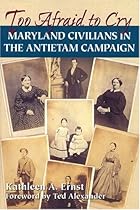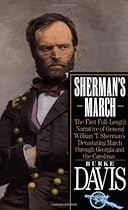Celebrating Might Makes Right: The Battle Hymn of the Republic & John Brown
A decorated Air Force combat veteran, he not only lived through the hellish anti-aircraft environment of low-level armed reconnaissance and attack missions over the Ho Chi Minh Trail, he was one of the few to bail out of a burning propeller-driven A-26 attack bomber at night over enemy territory and live to tell about it.
He served as an intelligence officer and navigator in the USAF from 1961 to 1969. While serving in the 606th Air Commando Squadron as an A-26 crewmember, he was awarded the Distinguished Flying Cross, Purple Heart, and Air Medal with Oak Leaf Cluster.========
Every year on the Sunday nearest July 4th millions of Americans in all sections of the country attend their local churches and sing the favorite patriotic hymn, The Battle Hymn of the Republic. This hymn is a frequent part of church services around Veterans Day and other national holidays and patriotic celebrations. It was a great favorite following the 9-11 tragedy in 2001. Yet the words of this famous hymn were not written by a Christian. They were written by a Unitarian that had rejected both the divinity and unique redeeming work of Christ.
Many Christians might find it shocking that Julia Ward Howe, the authoress of the famous words of the Battle Hymn of the Republic, was not a Christian, but a Unitarian. She was in fact not only a Unitarian, but a universalist and transcendentalist, a common combination of the times. As such she did not believe in the inspiration and authority of Scripture, the divinity and uniqueness of Christ as Savior, or the need for any redemption from sin. Unitarians believe in the basic goodness of man, rejecting the Scriptural Doctrine of Original Sin. Hence Unitarians do not acknowledge any need for redemption. Like modern liberalism, Unitarianism is humanistic and man-centered rather than God-centered. Julia Ward Howe believed that Christ was merely a great teacher and wonderful person with no claim to deity.
Unitarians generally believe in the fatherhood of God and the brotherhood of all men. They basically trust in their own wisdom and their own righteousness. Being generally universalists, they do not believe in hell. Frequently also transcendentalists, they were greatly into mysticism, séances, and various forms of unorthodox meditation. Such was Julia Ward Howe.
But we can get a clearer picture of Julia Ward Howe’s unorthodox beliefs by examining some of her own statements.
Not until the Civil War did I officially join the Unitarian Church and accept the fact that Christ was merely a great teacher with no higher claim to preeminence in wisdom, goodness, and power than many other men.”
Having rejected the exclusive doctrine that made Christianity and special forms of it the only way of spiritual redemption, I now accept the belief that not only Christians but all human beings, no matter what their religion, are capable of redemption.”
These same heresies are very common in America and Europe today, especially in liberal churches, the government, media and academic establishments.
Mrs. Howe and her husband, Dr. Samuel Gridley Howe, were early and apparently radical enthusiasts of the abolition movement. They were admirers of John Brown, an Old Testament quoting fellow Unitarian, fanatic abolitionist, terrorist, and grizzly murderer of Kansas farm families suspected of Southern sympathies. Just before
John Brown was hanged for his murderous raid on Harper’s Ferry, Virginia (now West Virginia); Mrs. Howe had this to say about him:
John Brown will glorify the gallows like Jesus glorified the Cross.”
Mrs. Howe borrowed the tune of the Battle Hymn of the Republic from a song the Union Army troops were fond of singing on the march, John Brown’s Body. It too, glorified the self-righteous murderer of innocent Kansas families. Brown was hanged by the U. S. government for his crimes in Kansas and attempt to start a bloody slave uprising in Virginia.
John Brown’s murders in Kansas, his murderous attempt at starting a slave revolt in Virginia, and his subsequent hanging did much to stir up distrust between North and South. A sizeable segment of the Northern press made Brown into an abolitionist hero.
This glorification of Brown was taken up my many Northern pulpits, especially the Unitarians so closely allied with the radical abolitionist movement. They were joined by many prominent Northern literary leaders with close links to Unitarianism and the leadership of the radical abolitionist movement.
Ralph Waldo Emerson said something very similar to Julia Ward Howe, calling Brown a saint and a martyr whowill make the gallows as glorious as the cross.”
Henry David Thoreau made this connection between Christ and the Charles Manson-like butcher and murderer, John Brown:
Some eighteen hundred years ago Christ was crucified; this morning, perchance, Captain Brown was hung. These are the two ends of a chain which is not without its links. He is not Old Brown any longer; he is an angel of light.”
It is not without significance that these two writers are usually required reading in public high schools. It is a tragedy that many Christian schools naively hold them up as models of moral wisdom as well as literary greats. It is all part of a quiet, ongoing Reconstruction. But I digress.
Christians should pay careful attention to some of the words of The Battle Hymn of the Republic. It is bad theology. It is essentially a self-righteous and imperialistic theology that justifies war, destruction, and vengeance as a means to reform other peoples and other nations in violation of their national sovereignty. While Scripture says that “vengeance belongs to the Lord,” this hymn glorifies the self-anointed vengeance of the self-righteous. It makes military force a proper means of imposing a confusion of Christian and humanistic ideals. It celebrates Might makes Right.
Of course Southerners should recognize that the Battle Hymn indirectly depicts the South as an evil that needs trampling down by the glorious and righteous Union Army doing the work of God. Many of Julia Ward Howe’s words in the Battle Hymn were inspired by her observation of the vast encampments, numbers, and arms of the Union Army. It was a glorious sight to her. The Battle Hymn was well received in the North because it put a righteous face on what was really a struggle to maintain Northern political and economic dominance over the South and to block Southern Independence. It was perfect propaganda for the Union and the world.
Unfortunately the vast majority of Christian churches have bought into that propaganda for many years. It is propaganda that has become even more entrenched as the events that inspired it have become more historically distant. The little that most people know or are taught in high school and college about the so-called “Civil War” is largely propaganda. That propaganda must now also support the modern tenets of humanistic liberalism that dominate so much of society, educational institutions, government, and yes, our churches. The Battle Hymn of the Republic has become an indispensable tool
for teaching and reinforcing politically correct history and thinking.
The degree to which the singing of the Battle Hymn of the Republic is so prevalent in evangelical churches today is symptomatic of the statism and nationalism that have become part of the syncretistic theology now so common in the modern evangelical church. That there is so little opposition or controversy to its singing in evangelical churches is due largely to ignorance. Yet that ignorance is in itself indicative of a negligent indifference to sound theology. It also unmasks the prevailing comfortable political correctness that values respectability more highly than truth. It reveals an increasing moral cowardice in confronting any issue of truth that does not meet the favor of the dominant molders of public opinion. It is a negligent moral blindness that often rises to the level of deliberate moral blindness rather than risk criticism. But authentic faith is invisible without courage.
Although the music itself is inspiring and many of the words beautiful poetry, a substantial segment of the underlying theme and many of the words are very bad theology and an instrument of unworthy propaganda. The music is so stirring I wish someone would write less questionable words to it. But as it stands now, not only should Southerners not sing the Battle Hymn, no Northern Christian or any Christian from anywhere in the world should sing it. No one with a right sense of truth, honor, and justice should sing it. Might does not make right, and reformers who want to impose their sense of righteousness on other peoples and nations by means of armed force are not on the side of God.
From Free North Carolina













0 Comments:
Post a Comment
Subscribe to Post Comments [Atom]
<< Home